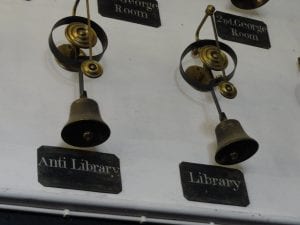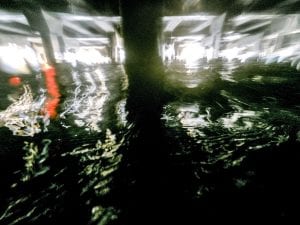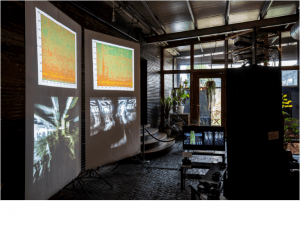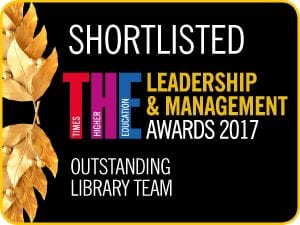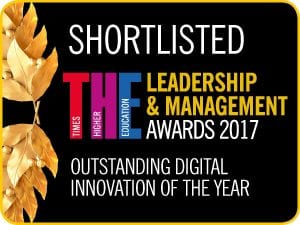The annual Higher Education (HE) Conference took place last week at the Queen Elizabeth II Centre, in the shadow of Big Ben and Westminster Abbey.  I attended to learn more about how HE policy is changing, as both Brexit and the focus on student fees in the recent General Election are continuing to impact on the future of universities. There were a range of speakers, from HEFCE, universities, suppliers and experts in education. Below are some highlights from 2 key speeches by the Chief Executive of HEFCE (1) and the Vice-Chancellor of the University of Buckingham on new ways of thinking about the role of universities as educators (2), as well as a summary of a panel discussion on life for universities after Brexit (3). I will post separately on a learning spaces workshop led by a US furniture supplier, based on their research and experiences of fitting out learning spaces.
I attended to learn more about how HE policy is changing, as both Brexit and the focus on student fees in the recent General Election are continuing to impact on the future of universities. There were a range of speakers, from HEFCE, universities, suppliers and experts in education. Below are some highlights from 2 key speeches by the Chief Executive of HEFCE (1) and the Vice-Chancellor of the University of Buckingham on new ways of thinking about the role of universities as educators (2), as well as a summary of a panel discussion on life for universities after Brexit (3). I will post separately on a learning spaces workshop led by a US furniture supplier, based on their research and experiences of fitting out learning spaces.
1. Keynote Address, Prof Madeleine Atkins, Chief Executive of HEFCE
HEFCE is the body which currently funds and regulates universities and colleges in England; from next year it will be replaced by the Office for Students.
The Chief Executive of HEFCE set out 4 main themes:
- Brexit
- Industrial Strategy
- Social Mobility
- The Student Interest
- Brexit concerns
- Rights of EU staff and researchers
- Relationships and partnerships with EU institutions
- Funding
Prof Atkins indicated that whilst there are (many) challenges, there is also a significant “Brexit opportunity”, namely that the UK as a country, may be able to define an international strategy for research partnerships, which was not possible or practical eithin the EU. An early example perhaps was Jo Johnson, as Minister for Universities, Science, Research and Innovation, signing a £60m agreement with the US Department of Energy’s for the LBNF/DUNE neutrino programme in late September: http://news.fnal.gov/2017/09/uk-commits-88-million-lbnfdune-first-ever-umbrella-science-agreement-u-s/.
(Whether or not this agreement was helped by Brexit is open to question, but there is a sense that research institutions in the UK are thinking very seriously about which countries and institutions we wish to make or grow partnerships with.)
Prof Atkins expected that the White Paper for the new Industrial Strategy was due around the time the Budget comes out on 22/11. The UK Government is determined that research, knowledge exchange and commercialisation undertaken by HE institutions (HEIs) should increasingly be linked and be seen to be linked to the priorities identified in the Industrial Strategy. She referred to a HEFCE-managed £100m boost provided by the Department for Business, Energy and Industrial Strategy (BEIS) for industrial priorities as well as an additional £100m capability fund to support university-to-university partnership for innovation.
Apprenticeships should be seen as part of this broad Industrial Strategy, with many apprenticeships being created in Engineering/STEM areas.
Advent of new T-level (Technical) qualifications coming alongside A-levels: Prof Atkins suggested that HEIs need to think about equivalence of qualifications, so that in due course a “climbing frame of opportunities” enables students to move from secondary education to Further Education into HE.
Prof Atkins reiterated that social mobility is an absolute priority for the current government. She outlined how HEFCE has been supporting this, for instance through a collaborative outreach programme, working with 25 consortia with schools and local communities. This initiative is taking action at ward level, looking at school outcomes based on student results at 16.
The full impact of the Teaching Excellence Framework (TEF) and its use of student background data has yet to be determined. Prof Atkins speculated that this data being made public would shape how providers are perceived, in terms of the reality of widening participation. Future use of these data will become very important, helping to give much more sophisticated answers to “what works in social mobility?”.
Better information and better careers guidance for students is a priority for OfS.
HEFCE is looking to develop a toolkit for learning gain in curriculum (identifying metrics and effectiveness of curricula). HEFCE has agreed over £4m of investment in this area, expect OfS will continue with this investment. For more information, see HEFCE’s webpages dedicated to learning gain and current pilots.
Finally, Prof Atkins referred to the emphasis made by Nicola Dandrige, the incoming Chief Executive of the Office for Students (OfS) in a speech to the NUS on 09/10: “the OfS will be the champion of students and the taxpayer, not the friend of institutions.”
[See also this recent report from HEPI (August 2017): Where next for WP and fair access?, which was mentioned during the conference]
The traditional view of young 18-yo F/T student as the default model for universities is becoming increasingly obsolete.
Whilst the percentage of 18 year olds in education has been generally rising, there has been close to a 60% drop in Part-Time mature students; at the same time, in-house training is declining. Prof Atkins suggested that the sector needs to consider how the Apprenticeship levy can be used to support people in employment as part of CPD.
Opportunities and Challenges
- Teaching excellence and student outcomes
- REF 2021
- Related initiatives
Teaching excellence and Student outcomes
Sir Michael Barber, who will be Chair of the OfS, sees TEF as part of the “Golden Age” which he expects to introduce. For his full speech to Universities UK, see UUK’s website.
TEF structure retained for Year 3 TEF (specification published last week, on DfE website)
In order to gauge to progress of HEIs in preparing students for employment, LEO (Longitudinal Employment Outcomes Survey) will be used as a metric in the new TEF. ProfAtkins added that Subject-Level TEF is progressing: pilots are recruiting for panellists and assessors now. It will be rolled out across the UK in Year 5, i.e. 2019-20.
REF 2021
Prof Atkins described a number of decisions recently agreed by HEFCE:
- Impact weighting goes up
- Each area will include a member of the panel focused on multi-disciplinary research
- Entries will be allowed to demonstrate how they support activity outside of the university
- Impact in teaching will be allowed, including impact within the institution
HEFCE webinar and blog floated suggestion that portability of outputs could be resolved for 2021 by some double-counting as a transitional method, i.e. both originating and new institutions eligible to submit.
Joint Agendas: OfS and Research England responsibilities
- Postgraduate
- Knowledge exchange
- Infrastructure funding
- Health of disciplines
- Sustaining the research base
- Research degree awarding powers
- Interface between TEF and REF
Related initiatives
- Learning Gain Programme
- Degree Apprenticeships
- Institute of Technology
- Expansion of medical places
- Connecting Capability Fund
- Research Partnership Investment Fund
- Local Growth Academy programme (sending representatives to the next iteration of Academy programme, to address the need of HE institutions to work more closely with regions/sub-regions, NHS, etc.) to address precise regional needs in social mobility or industrial and skills needs
2. Should we be Educating just Brains or Whole People in HEIs, Sir Antony Seldon (VC, University of Buckingham)
New paper published on “The Positive University” [See also caveats on wonkhe: https://wonkhe.com/blogs/beware-of-the-positive-university/]. The University of Buckingham is regularly ranked as best in the UK for student satisfaction (in fact, it has been top or second every year since 2011 – see, for instance,
http://www.independent.co.uk/student/student-life/Studies/buckingham-university-named-best-in-the-uk-for-student-satisfaction-a7006276.html or https://www.thecompleteuniversityguide.co.uk/universities/top-5-uk-universities-for-student-satisfaction-2018/?entry=1)
Sir Antony, Vice-Chancellor at Buckingham, is also a contemporary historian, educationalist, commentator and political author. He makes 10 recommendations in his new book about transition between school and university. He described the 10 points in his talk, which was well presented, posed challenging questions to reflect on and was at times caustic towards leaders and managers in the HE sector, particularly around the need to speak out and act as a critical friend of government, rather than slavishly following policy. As noted above, some caveats have been raised against the moralistic aspects of positive psychology.
1) Need to ensure staff are contented, so that they can fulfil role in supporting mental health and pastoral care for students, as well as having fulfilling lives.
2) The VC of Buckingham questioned why there is a paradox currently, where British universities have never been more successful but public opinion on universities has never been so low
2) Universities are called “Higher Education Institutions”: too often, the focus on the “H” detracts from universities’ role as educators
3) What does “education” mean? to lead out / to draw out what is inside. HE has narrowed down intelligence to 2 of the 8 types of intelligence (see Howard Gardner, Harvard). Focus on linguistic and logical intelligence. Sir Antony argued that universities need to also develop emotional intelligence, social intelligence, cultural intelligence, kinaesthetic intelligence, moral intelligence, spiritual intelligence.
Not about teaching to the tests: schools that prioritise roundedness see their results increase. Those that prioritise results, see decline.
4) UK has extraordinary universities but need real leadership to help them grow and thrive. Universities are narrow. Universities are mainly driven for academics; academic subjects need to be re-booted to their radical roots.
5) Rebellion about universities; government is coming in and insisting on the TEF. In critiquing TEF, Sir Antony contended that it is mechanistic, not looking at learning, more focused on teaching, little learning from abroad, little learning from schools. Sir Antony recognised that there was a need to address education in universities, but does not believe TEF is the right approach.
6) VC pay case playing out over the summer was not persuasive for VC salaries; in contrast with other university staff pay
7) Subjects need to be re-oriented to radical roots, not shaped around academics’ career needs
8) All students should do volunteering
Everybody should be taught virtues: performance virtue (see Jubilee Centre for performance, Birmingham); Civic virtues, Moral. All students should be taught entrepreneurship. Everybody should be taught leadership.
9) The positive university. General mental health crisis response was to get more counsellors, but that is insufficient – need to also think about how to develop personal efficacy and resilience. Mindfulness is one way that we can learn.
10) The British HE sector is outstanding. Contribution of universities to local communities as well as to public perception of Britain abroad is boundless. Sector needs to lead more strongly, to be clearer on the benefits of our sector, since the public case is not being made. Positive psychology, about advocacy and making the case.

3. Maintaining International Collaboration after Brexit
Brenda McMahon (Global Head of Higher Education, British Council), Vivienne Stern (Director, Universities UK International), Conrad Bird (Director of the GREAT Britain Campaign, Prime Minister’s Office and Cabinet Office)
Universities showing commitment to students in the aftermath of Brexit vote. GREAT Britain Campaign keen to support universities promoting to international students, e.g. via the embassy network.
UUK: “need to work harder”. Plenty of reasons for believing that we will retain access to some key partnerships, based on government rhetoric (frameworks for research, Erasmus +)
If cannot remain in EU frameworks, UUK are looking at how we can work with networks (scenario planning with EU counterparts)
The British Council is supporting and avocating for an “open Brexit” with movement permitted for staff and students
Conrad Bird: people who come into contact with a country (as a tourist, student, coming across culture in own country, etc.) are c. 30% more likely to invest in that country. There is a business case for attracting students into the UK.
UUK: there has been neglect in terms of developing commercial/innovation links with other countries. There will be more of this type of thinking. UUK have launched a blog campaign on “bringing innovation home” (600 words, write to Miranda.Thomas@international.ac.uk) describing benefits of universities’ international activity for local/UK firms.
How are Government addressing the risk of loss of EU research funding?
UUK: absolutely believe that belonging to framework is essential and irreplaceable. 7-year multi-lateral agreement provides stability for major international partnerships and also supports networking and benefits not just UK but also EU institutions.
UUK understand urgency; EU counterparts don’t really know whether UK partners can be included in bids. Theresa May said to the House of Commons on 09/10 that the UK wants to continue contributing to research programmes; commitment of intents. Conrad Bird (to the audience of university staff): “you’re doing very good work in this area and I think it’s being heard.”
Overall, the discussion illustrated that there is still a lot of uncertainty around Brexit (unsurprisingly) but the agencies and government departments involved are committed to ensuring that the HE sector in the UK is maintained as a world-leading area. There was no guarantee, nor indeed any real news, about Brexit at the conference, and I will update you as and when there are any developments. I referenced the UUK “bringing innovation home” blog above, in case it is of interest to colleagues (within the Library or UCL more widely).
 Close
Close





